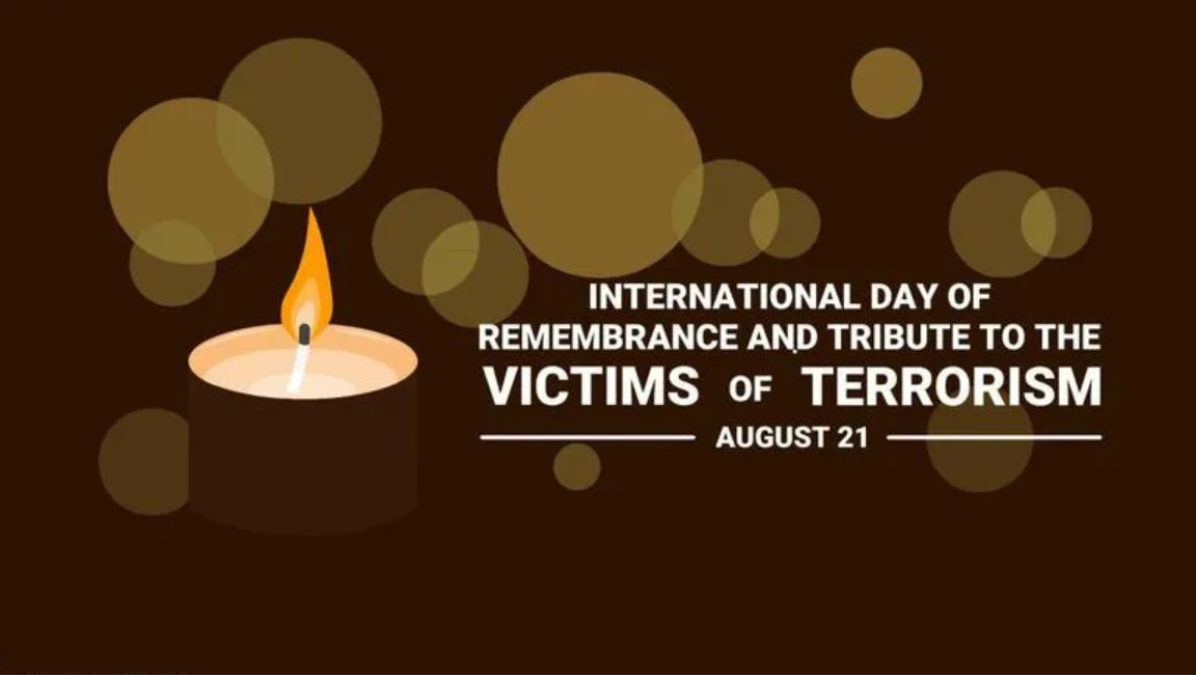The International Day of Remembrance and Tribute to the Victims of Terrorism serves as a solemn reminder of the ongoing global challenge posed by terrorism. This day, observed annually on August 21st, aims to honour and support the victims and survivors of terrorist acts while promoting the protection of their human rights and fundamental freedoms.
The Impact of Terrorism
Widespread Harm
Terrorism continues to be a global scourge, with acts of terror propagating a wide range of hateful ideologies. These actions result in:
- Injuries to thousands of innocent people
- Psychological harm to survivors and communities
- Loss of life on a significant scale
Challenges Faced by Victims
Despite international condemnation of terrorism, victims and survivors often face numerous challenges:
- Struggle for Recognition: Their voices are frequently unheard in the aftermath of attacks.
- Inadequate Support: Many victims find their needs are not sufficiently addressed.
- Rights Violations: The rights of terrorism victims are often overlooked or not fully upheld.
- Feeling Forgotten: As media attention fades, victims may feel neglected, leading to profound emotional and psychological consequences.
Long-term Support Needs
Resource Limitations
Many Member States lack the necessary resources and capacity to address the medium and long-term needs of terrorism victims. This deficiency hampers victims’ ability to:
- Fully recover from their experiences
- Rehabilitate both physically and mentally
- Reintegrate into society effectively
Multidimensional Support Requirements
Most victims require comprehensive, long-term support across various dimensions:
- Physical: Medical care and rehabilitation
- Psychological: Mental health services and counseling
- Social: Community reintegration programs
- Financial: Economic assistance and compensation
Responsibilities and Roles
Member States’ Primary Duty
Member States bear the primary responsibility for:
- Supporting victims of terrorism
- Upholding the rights of those affected by terrorist acts
United Nations’ Role
The United Nations plays a crucial supporting role in several ways:
- Solidarity: Standing with and providing support to victims of terrorism
- Capacity Building: Offering assistance to enhance Member States’ capabilities
- Networking: Establishing connections between various stakeholders
- Civil Society Support: Offering aid to organizations, particularly victims’ associations
- Advocacy: Encouraging Member States to promote, protect, and respect victims’ rights
International Day Establishment
UN General Assembly Resolution
The International Day was established through UN General Assembly Resolution 72/165 in 2017. This resolution set August 21st as the annual date for commemoration.
UN System Progress
Secretary-General’s Report
In April 2020, UN Secretary-General António Guterres published a report titled “Progress of the UN system to support Member States in assisting victims of terrorism” (A/74/790). This report emphasized the need for enhanced international cooperation in assisting terrorism victims.
Global Counter-Terrorism Strategy
Biennial Review Resolutions
Member States have consistently emphasized the importance of victims in counter-terrorism efforts through biennial reviews of the Global Counter-Terrorism Strategy. These reviews highlight:
- The role of victims in countering terrorism
- Promotion of international solidarity
- Prevention of violent extremism
- Recognition and upholding of victims’ human rights
- Support for victims’ distinct needs
Recent Developments
Sixth Strategy Review (2018) Onwards
Since 2018, there has been a shift from symbolic solidarity to more robust engagement in advancing victims’ rights and needs. Key developments include:
- Establishment of the Group of Friends of Victims of Terrorism in 2019
- Adoption of General Assembly resolution A/RES/73/305 on enhancing international cooperation to assist terrorism victims
Eighth Review Resolution (June 2023)
The most recent review resolution (A/RES/77/298) emphasized:
- Upholding rights and supporting needs of terrorism victims
- Special focus on women, children, and those affected by sexual and gender-based violence
- Encouragement for Member States to develop national comprehensive assistance plans
United Nations Global Congress of Victims of Terrorism
The first such congress was held in September 2022 at UN Headquarters, marking a significant step in global recognition and support for terrorism victims.
Ongoing Initiatives
UN Office of Counter-Terrorism
The resolution encourages the UN Office of Counter-Terrorism to continue its efforts through:
- Global Victims of Terrorism Support Programme
- United Nations Victims of Terrorism Support Portal
These initiatives aim to:
- Raise awareness about terrorism victims
- Promote and protect victims’ rights
- Strengthen Member States’ capacity to assist victims
- Enhance engagement with civil society and private sector organizations




 National Women's Day 2026 India: Signifi...
National Women's Day 2026 India: Signifi...
 World Radio Day 2026: Why Radio Still Ma...
World Radio Day 2026: Why Radio Still Ma...
 National Productivity Council Marks 68th...
National Productivity Council Marks 68th...








